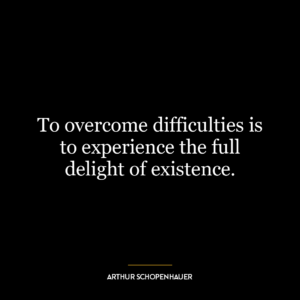Where there is no love, a person’s faithfulness to the marriage bond is probably against nature.
This quote by Arthur Schopenhauer essentially suggests that if love is absent in a marriage, staying faithful to that marriage might be against a person’s natural instincts. It implies that love is the driving force that keeps a person committed and faithful in a relationship. Without love, the natural inclination might be to seek fulfillment, satisfaction, or connection elsewhere.
Schopenhauer’s perspective is rooted in his philosophical understanding of human nature and desire. He viewed love as a powerful, innate force that drives human behavior. In his view, without love, the commitment to a marriage is not just difficult but also unnatural.
Applying this idea in today’s world, it underlines the importance of love in maintaining a healthy and successful relationship. It suggests that without love, marriages may become more susceptible to infidelity, dissatisfaction, or dissolution. This is not to say that love is the only ingredient necessary for a successful marriage. Trust, respect, communication, and mutual understanding are also key. However, Schopenhauer’s quote emphasizes that love is a fundamental component that binds all these elements together.
In terms of personal development, this quote may inspire individuals to reflect on their relationships. It encourages people to ensure that love is the foundation of their commitments, not just societal expectations or routine. It may also prompt individuals to reassess their feelings and actions within their relationships. If love is missing, they might need to explore whether they are acting against their nature by remaining in an unfulfilling relationship.
Furthermore, this quote can also be interpreted as a call to authenticity. It suggests that individuals should not force themselves to stay in relationships that do not align with their feelings or instincts. This can lead to personal growth, as it promotes honesty with oneself and others, and can lead to more fulfilling relationships in the future.















